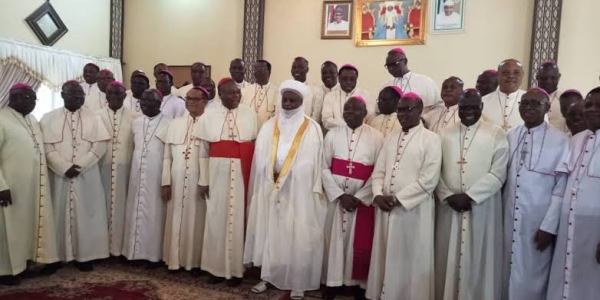In a unified stance, the Catholic Bishops Conference of Nigeria (CBCN) and the Islamic Forum of Nigeria have both called on the federal government to withdraw from the Samoa Agreement. The CBCN, through a statement titled ‘Threats to the Sovereignty and Values of Nigeria in the Samoa Agreement,’ expressed concerns that the nuanced language of the document could undermine Nigeria’s sovereignty and core values.
The bishops highlighted that the Samoa Agreement is the latest iteration of a series of treaties originally designed as trade and aid agreements between the European Union and African, Caribbean, and Pacific states. They argued that the secrecy surrounding Nigeria’s signing of the agreement raises questions about its implications for the nation’s sovereignty.
READ ALSO :: Reps come Hard on Federal Government on Samoa deal
Simultaneously, the Islamic Forum of Nigeria, meeting in Kano, voiced strong opposition to the agreement, asserting that it conflicts with the political, economic, religious, and cultural rights of Nigerians. The forum, led by Engr. Bashir Adamu Aliyu, particularly condemned any attempts to introduce LGBTQ+ rights into Nigerian society through international treaties.
Professor Shuaibu Zunnurain, speaking at the Islamic Forum meeting, warned that terms like “gender” and “reproductive rights” in the agreement could be used to promote LGBTQ+ and abortion rights. He emphasized the importance of using precise language, as reflected in Nigeria’s 1999 Constitution, which refers to “sex” rather than “gender.”
Additionally, the Jama’atu Izalatil Bid’a Wa’iqamatis Sunnah (JIBWIS) has formed a committee of experts to thoroughly review the Samoa Agreement. The JIBWIS chairman, Sheikh Abdullahi Bala Lau, emphasized that the committee aims to ensure that the agreement does not endorse LGBTQ+ practices, which are prohibited under Islamic law and Nigerian legislation.
Both religious groups urged the government to consult with the Nigerian populace before committing to international treaties that could affect the country’s social, educational, and religious life. They also called on parents and educators to be vigilant in monitoring children’s media consumption to safeguard against moral degradation.
– solakuti

